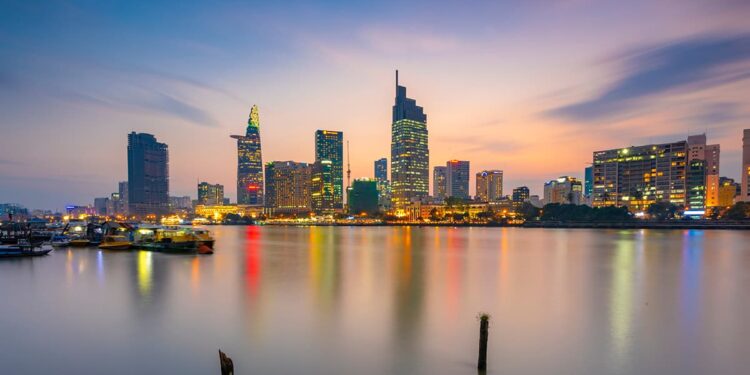Southeast Asia’s financial markets and economies ended the week with a mixed performance. Indonesia’s political unrest unsettled investors, while other countries in the region reported slower growth, highlighting a cautious outlook as global trade conditions remain uncertain.
Indonesia hit by political turmoil
Indonesia was at the centre of regional financial attention this week. Violent protests erupted over controversial housing allowances for lawmakers, prompting widespread demonstrations in Jakarta and other cities. The Jakarta Composite Index fell as much as 3.6% during trading before recovering to close 1.1% lower by the end of the week.
The rupiah also came under pressure, though the central bank intervened to support the currency and reassure investors. President Prabowo moved quickly to cancel the allowances and pledged stability, but analysts warned that political unrest could undermine confidence in Southeast Asia’s largest economy.
Singapore adjusts growth outlook
Singapore’s economy showed signs of slowing, with weaker exports and industrial output weighing on performance. While financial services and consumer spending provided some resilience, policymakers signalled that the city-state’s growth outlook for 2025 may need revision if global trade uncertainty continues.
Mixed performance across Malaysia, Philippines, Thailand and Vietnam
Malaysia reported quarterly GDP growth of 4.4%, supported by government spending but dragged down by weaker manufacturing and mining output. The Philippines fared better, with growth of 5.4% driven by domestic consumption and infrastructure spending, though foreign investment inflows softened.
Thailand’s economy expanded by 3.1%, helped by a strong 15% rise in exports, its best performance in over three years. However, falling household consumption highlighted internal challenges. Vietnam remained one of the region’s fastest-growing economies at 6.9%, despite signs of slowing exports and a weaker purchasing managers’ index. Foreign investment inflows surged, offering support to growth momentum.
Regional trade and investment trends
The World Bank’s updated projections for 2025 showed growth moderating across the region: Indonesia at 4.7%, Malaysia at 3.9%, the Philippines at 5.3%, Thailand at 1.6% and Vietnam at 5.8%. Export-dependent economies, particularly Vietnam and Thailand, remain vulnerable to shifting tariff regimes and protectionist policies in the United States and Europe.
Institutional investment in infrastructure and technology continues to flow into the region despite these headwinds. This week saw Deutsche Bank and Standard Chartered finance a USD 184 million satellite project in Thailand, signalling ongoing appetite for long-term strategic projects. Regional banks are also stepping up resilience measures, including stress-testing and digital risk management, to protect against external shocks.
Outlook
The financial week in Southeast Asia closed with cautious optimism mixed with persistent risk. Indonesia’s unrest remains the largest source of uncertainty, while Singapore and Malaysia face moderate headwinds. Stronger performances in the Philippines and Vietnam underline regional resilience, but investor sentiment is likely to remain defensive as global trade tensions persist.



Recent Comments